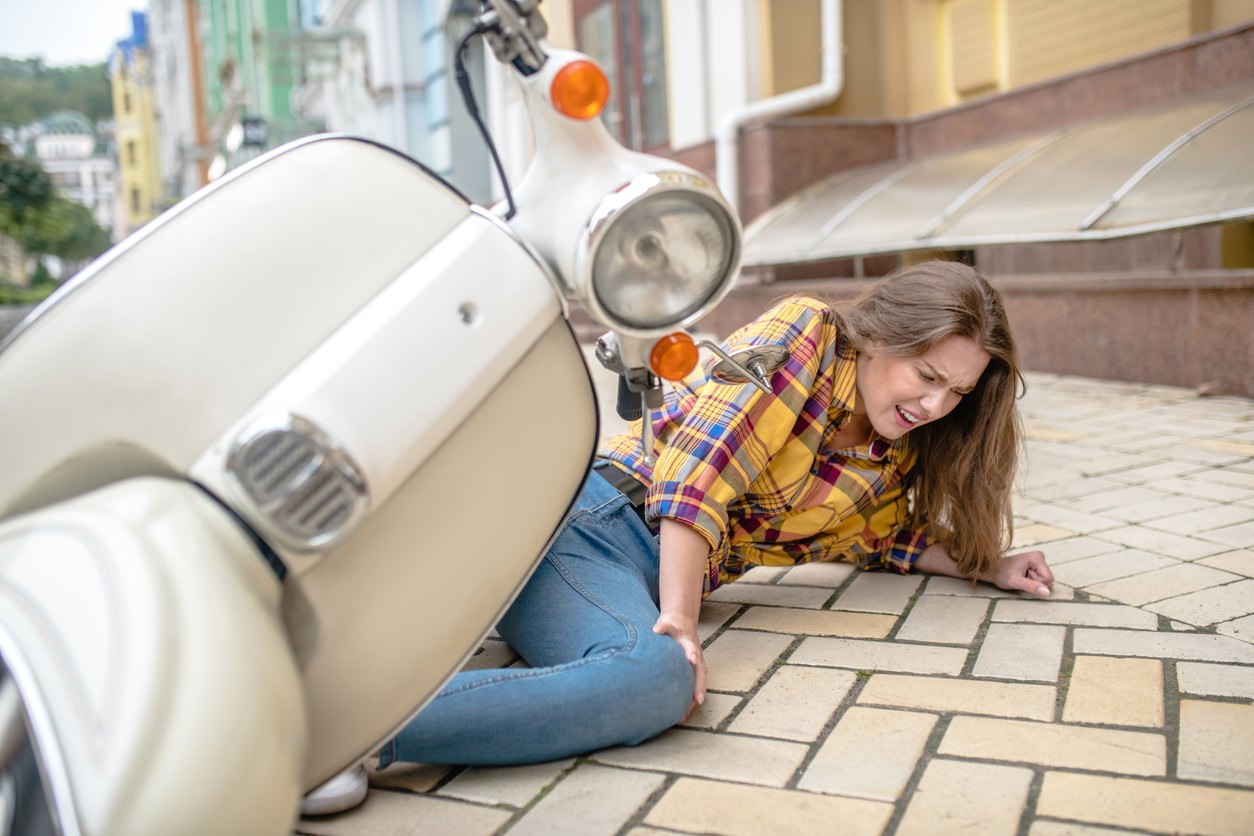How Safe Are Motor Scooters in Boston?
Published in Motorcycle Accidents on February 11, 2021

Reading Time: 3 minutes
The metropolitan Boston region has some of the most congested traffic in the country. Unsurprisingly, two nearby cities, Somerville and Cambridge, are in the top five cities with the highest number of bicycle commuters.
With the increase in the use of motor scooters, including electric scooters, the U.S. has seen an increasing number of scooter injuries. There’s been a great deal of controversy about the use of shared scooters in Boston. If you are considering getting a motor scooter to use as your transportation in Boston, you should learn about the risks and how to stay safe.
Since motor scooters are small, they can be easy to maneuver on the roads. They fit into the smallest parking spaces. But they also are more difficult for drivers to see on the streets.
The wind against a rider’s face may make motor scooters fun to ride. But, the lack of protection afforded to drivers in a car accident makes scooter accidents more dangerous.
How Does Massachusetts Law Define Motor Scooter?
Massachusetts law recognizes both motorized bicycles, also known as mopeds, and motorized scooters. Different laws apply to differently defined vehicles.
Motorized Bicycles or Mopeds
Under Massachusetts law, both a pedal bicycle or a non-pedal bicycle with a motor are categorized as motorized bicycles.
Also known as mopeds, the motors on these vehicles:
- Must be automatic transmission
- Cannot have a capacity of greater than 50 cubic centimeters
- Cannot be capable of speeds above 30 miles per hour
Motorized bicycles that deviate in minor ways from these requirements may qualify as Limited Use Motorcycles or traditional motorcycles.
Motorized Scooter
Motorized scooters are defined more broadly. They may have two or three wheels. They have handlebars. They can be stood or sat upon. They may have either an electric motor or a gas-powered one.
Motorized scooters do not include motorcycles, motorized bicycles (mopeds), or three-wheeled motorized wheelchairs.
Massachusetts law requires motorized scooter operators to possess a valid driver’s license. There are also minimum age requirements for operators and mandatory helmet rules.
Motorized scooters are not required to carry insurance. Studies have shown that a vast majority of moped riders are uninsured.
What Typical Injuries Result from Motor Scooter Accidents in Boston?
Motor scooter accident injuries vary in severity and type. The injuries are often dependent on the circumstances of the accident.
For example, a motor scooter rider not wearing a helmet who is hit in a truck accident will likely suffer severe brain injuries. A slow-speed pedestrian accident might result in broken bones.
What Causes Motor Scooter Accidents in Boston?
Motor scooter accidents can have many causes, like distracted driving. Like car drivers, motor scooter operators may choose to drive under the influence of alcohol or drugs.
They can also have unfamiliar causes, like defective motors. Defective motor scooter injuries include severe burn injuries. In fact, some scooter companies have issued recalls due to fire risks.
What Safety Rules Apply to Motor Scooters in Boston?
Motor scooter riders must adhere to safety rules designed to protect them from catastrophic injuries. The rules restrict where motor scooters can ride, for example.
Motor scooters may use most public roadways, with the exception of express state highways and limited use highways. Motor scooters are not allowed where bicycles are prohibited.
Motorized scooters may use bike lanes on public rights of way. However, they cannot use recreational bike paths that are off the street. This means motorized scooters would not be allowed, for example, on a wooded bicycle path in a public park.
Motorized scooter riders are prohibited from carrying passengers. They cannot operate after sunset or before sunrise. These additional restrictions show the risks that are involved when operating a motor scooter in Boston.
For more information, call our law office at (617)-391-9001. Or if you would prefer to email us, then please visit our contact page.
Comments are closed.










